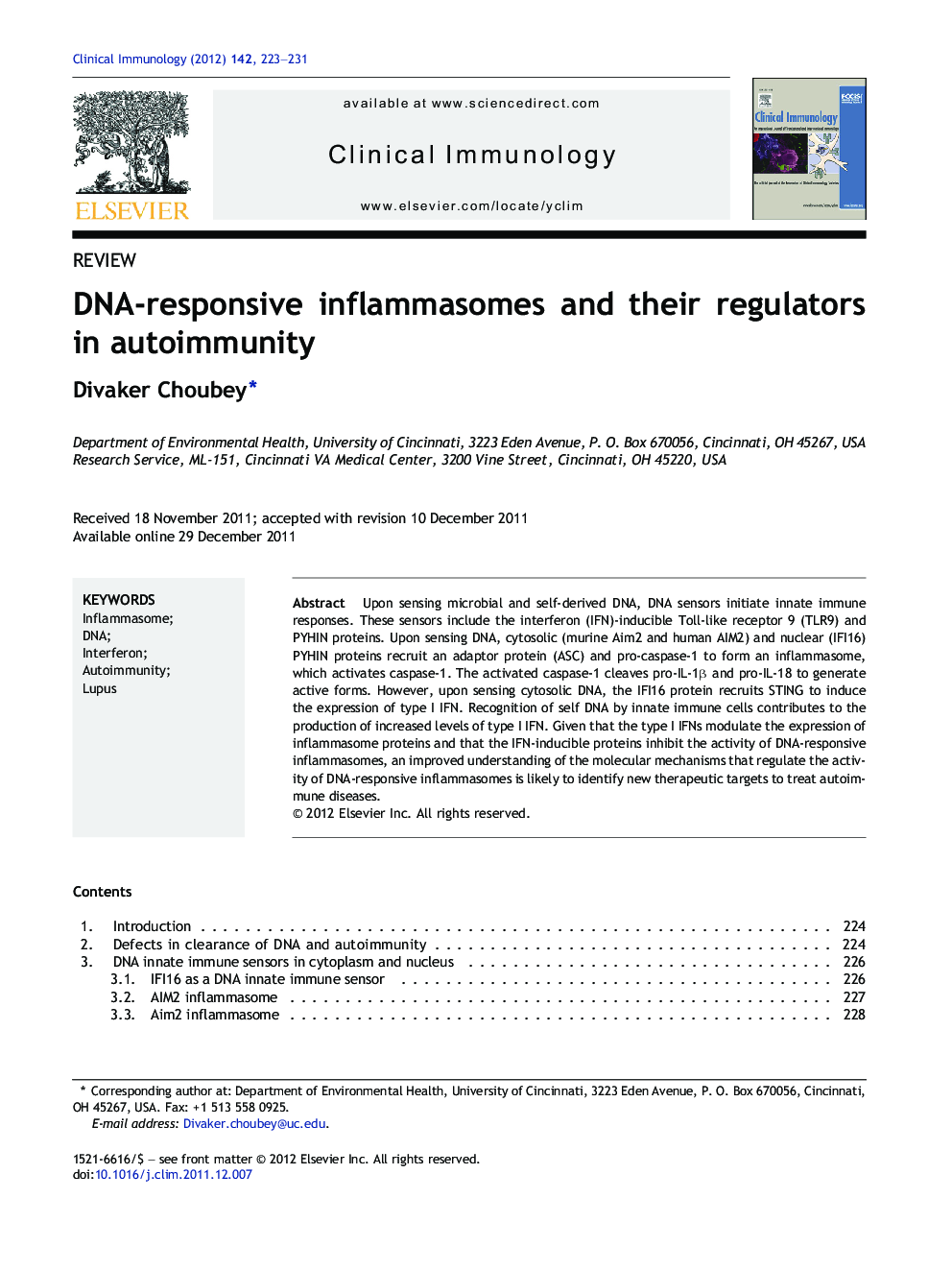| Article ID | Journal | Published Year | Pages | File Type |
|---|---|---|---|---|
| 3257162 | Clinical Immunology | 2012 | 9 Pages |
Upon sensing microbial and self-derived DNA, DNA sensors initiate innate immune responses. These sensors include the interferon (IFN)-inducible Toll-like receptor 9 (TLR9) and PYHIN proteins. Upon sensing DNA, cytosolic (murine Aim2 and human AIM2) and nuclear (IFI16) PYHIN proteins recruit an adaptor protein (ASC) and pro-caspase-1 to form an inflammasome, which activates caspase-1. The activated caspase-1 cleaves pro-IL-1β and pro-IL-18 to generate active forms. However, upon sensing cytosolic DNA, the IFI16 protein recruits STING to induce the expression of type I IFN. Recognition of self DNA by innate immune cells contributes to the production of increased levels of type I IFN. Given that the type I IFNs modulate the expression of inflammasome proteins and that the IFN-inducible proteins inhibit the activity of DNA-responsive inflammasomes, an improved understanding of the molecular mechanisms that regulate the activity of DNA-responsive inflammasomes is likely to identify new therapeutic targets to treat autoimmune diseases.
► DNA-responsive inflammasomes contribute to the development of autoimmunity. ► The interferon-inducible PYHIN proteins sense cytosolic and nuclear DNA. ► The PYHIN proteins initiate different innate immune responses after sensing DNA. ► The AIM2 inflammasomes is negatively regulated by the IFI16 protein. ► Activation of inflammasomes may contribute to end-organ disease in SLE.
